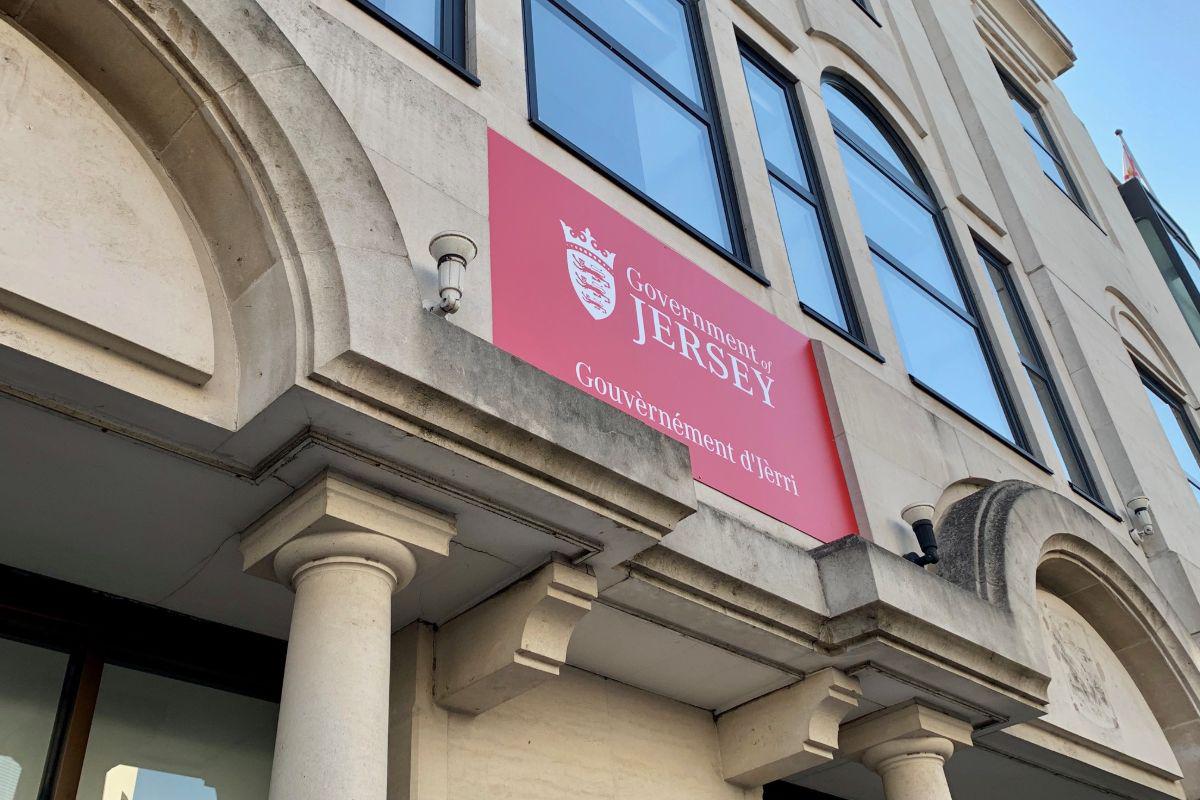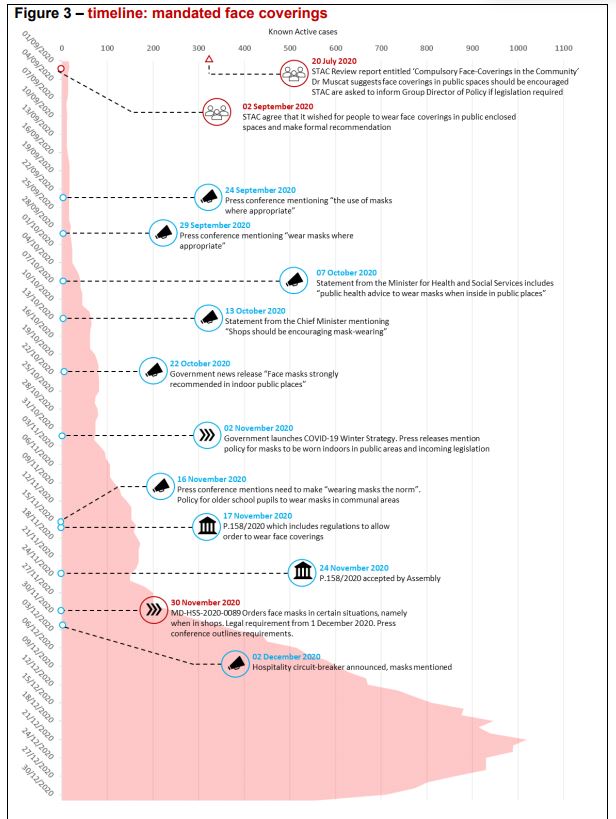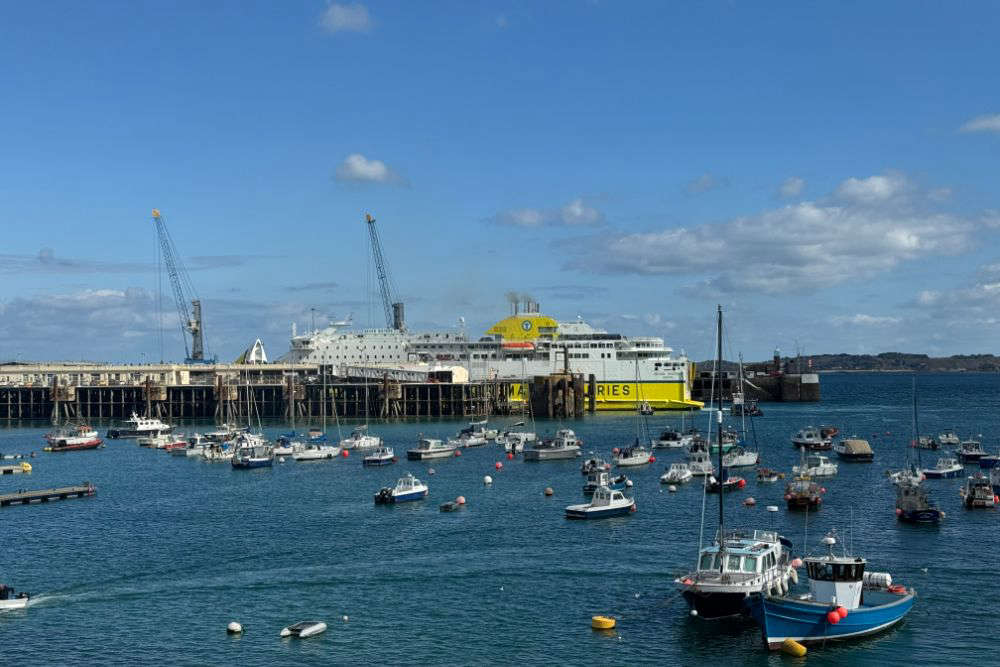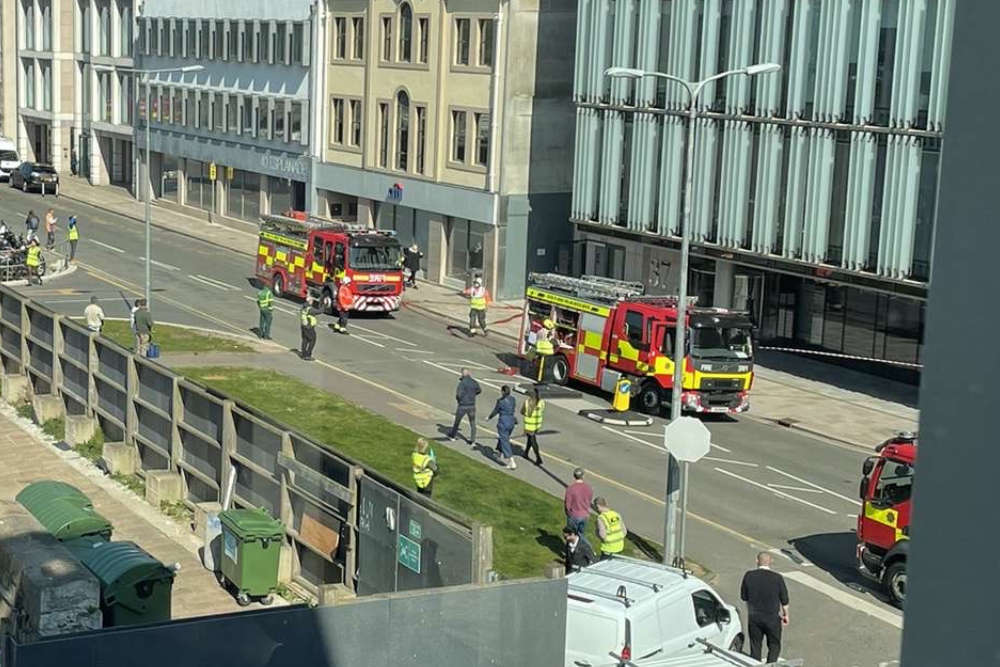
The government’s decision-making during its Covid-19 response last year lacked transparency, according to Scrutiny.
The Corporate Services Scrutiny Panel has published its interim report looking at key decisions made between March and December 2020.
Transparency with S.T.A.C minutes has been called 'not adequate' – as a proposition had to be passed to make them available to the public. The time for minutes to be made available has also been criticised.
The latest available minutes are from 4 January 2021.
The government has been told to start making it abundantly clear what advice a decision is based upon. The panel says it’s been challenging to judge which decisions were based on advice because of the lack of transparent sharing of evidence.
"For example, Red Amber Green (RAG) ratings for incoming travellers were questioned in the S.T.A.C meeting of 7th September 2020, with the Cell being informed that some politicians had queried the possibility of increasing the Amber region threshold to those areas with an excess of 50 cases per 100,000 over the previous 14 days rather than 25. It was the view of the Consultant in Communicable Disease Control (Dr Ivan Muscat) that Jersey was performing well in comparison to neighbouring jurisdictions and that making the requested change would not be helpful.
"Records of the advice of S.T.A.C changing had not been minuted, making it unclear if the decision to carry out the recategorisation that took place later in September was based on medical and scientific knowledge or political will.
"As highlighted by the S.T.A.C Chair during the Panel’s hearing of the 5th February 2021 the Cell gave advice based on their expertise, however, they were not decision-makers. It was suggested that Ministers held a greater overview and ultimate accountability for the decisions being made. Indeed, it appears as though this medical advice did not change and the recategorisation that took place later in September 2020 went against the medical advice given by S.T.A.C.
"It is, therefore, unclear as to the evidence and motive behind the change made by the Council of Ministers - beyond the well recited “balance of harms” against connectivity and wider social impact - that necessitated a compromise involving the risk of increased infection."
The length of time taken to make it law to wear masks has been called ‘concerning’, as the possible need for it was first mooted in July last year. It didn’t become an order until December.
The panel says this lack of forward thinking and pre-emptive action meant this was only introduced when we had 238 cases, nearly a month after we passed 100.

"It seems that Ministers could have directed officers to concurrently draft legislation and even pre-emptively provide this to the Assembly, allowing for a more rapid introduction of the order once S.T.A.C made a formalised recommendation.
"It is unclear on which advice policies such as the Christmas guidelines were formed, as highlighted by the Director of Strategy and Innovation on the 7th December 2020 the Competent Authority Ministers had reached a decision in respect of the Christmas guidance, so he did not believe that there was a formal need for the Cell to provide advice, albeit he suggested that any views of the Cell would be welcomed . Examples such as the introduction of mandatory face coverings call into question the forward planning of Ministers."
The panel says the government should create COVID-19 legislation, even in a draft form, as a matter of priority, especially when advised that doing so would be beneficial.
The Chief Minister has also been asked to survey islanders on what they think of the government’s Covid response ‘to better inform decision-making and policy development'.
Island Global Research carried out surveys during the pandemic, with one carried out in October last year revealing that 43% of respondents didn't agree with the government's strategy. That compared to 80% in Guernsey.
In public hearings, the Chief Minister said these surveys were not statistically representative.
The government's ongoing response to the pandemic throughout 2021 will be the focus for the next stage of the review.
"The need for the Government to provide clarity and transparency in decision-making related to COVID-19 is crucial, particularly when it comes to the minutes of decision-making bodies. Whilst the Panel appreciates the pace at which the Government has had to respond to this pandemic, the Panel’s recommendations should inform the ongoing response and that of future crises."
"The Panel will continue monitoring the effectiveness of Government decision-making and evaluate the potential long-term societal impacts of these decisions in its next report." - Senator Kristina Moore, Panel Chair.


 Civil Service recruitment freeze extended
Civil Service recruitment freeze extended
 Industry rumours of Bergerac second series
Industry rumours of Bergerac second series
 DFDS brings in replacement ship for Portsmouth sailings
DFDS brings in replacement ship for Portsmouth sailings
 100 days until Orkney Island Games begin
100 days until Orkney Island Games begin
 £200k padel facility coming to Les Ormes in May
£200k padel facility coming to Les Ormes in May
 Two islanders trapped in a lift rescued from sixth-floor fire on the Esplanade
Two islanders trapped in a lift rescued from sixth-floor fire on the Esplanade
 Rooftop bar, climbing wall and concert hall in £110m Fort Regent plans
Rooftop bar, climbing wall and concert hall in £110m Fort Regent plans
 3m tall substation and bin store proposed for Gorey promenade
3m tall substation and bin store proposed for Gorey promenade

